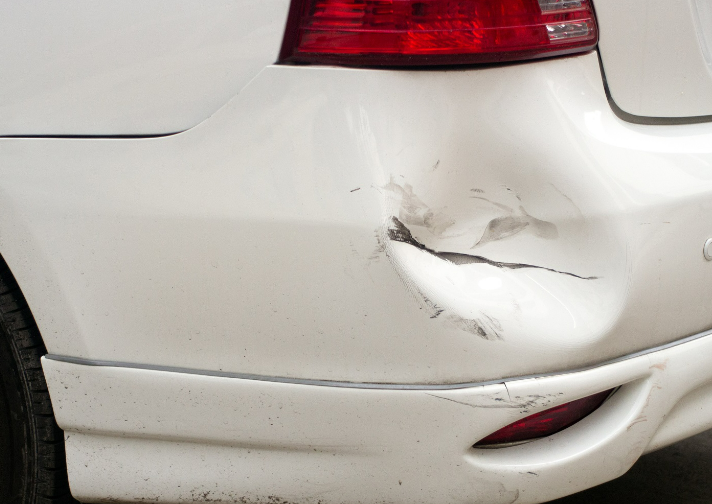Does Car Insurance Cover Scratches & Dents?

You likely understand that car insurance shields you from financial repercussions in the event of an accident. But what about minor damages like scratches and dents? Does car insurance cover these? Is there such a thing as specialized car scratch insurance? The answer isn’t straightforward and depends on the specifics of your insurance policy. Even if you have coverage, there are instances where paying for repairs out of pocket might be more advantageous. Bankrate has put together this guide to assist you in navigating the handling of car scratches and dents effectively, outlining when insurance coverage applies and when self-payment might be preferable.
Is minor damage covered by car insurance?
Can I file a car insurance claim for scratches and dents? And is it worthwhile to use insurance for a dent? Scratches and dents, while they may mar your car’s appearance, typically do not affect its functionality. Examples include scratches from keying or dents from road debris. If the damage is severe enough to render your car undrivable, it’s crucial to get it to a repair shop promptly.
In many cases, you can use collision or comprehensive coverage to cover minor damages. However, the decision hinges on your deductible. For instance, if your repair costs amount to $150 but your deductible is $500, your insurance won’t cover it, and you’ll bear the entire cost. If you only have the minimum insurance required by your state, you likely lack this coverage and would need a comprehensive insurance policy for vehicle damage.
When does car insurance cover scratches and dents?
Collision coverage is designed to cover damages resulting from collisions with other vehicles or objects such as light posts or mailboxes while driving. On the other hand, comprehensive coverage extends to damages caused by incidents other than collisions. This can include scenarios like a tree falling on your car, vandalism, or damage from a hailstorm that breaks your car windows.
Here are a few more scenarios and how coverage might apply:
| Scenario | How coverage applies |
|---|---|
| A deer dents your car | Comprehensive coverage typically covers damage from animals. Even minor incidents can cause damage, but collisions with larger animals like deer can result in severe damage or total loss of the vehicle. |
| A squirrel chews on your car’s wires | Comprehensive insurance can help cover the cost of repairs. Damage from chewing squirrels can be more than just a minor scratch, potentially making your car unusable. |
| You get into a fender bender | If you rear-end another vehicle and scratch your bumper, collision coverage may cover the damage to your car. Your property damage liability insurance will cover damage to the other driver’s car. If the other driver is at fault, their property damage liability should cover the repairs. |
| Your car gets keyed | Vandalism, such as keying or spray-painting your car, is generally covered by comprehensive coverage. Damage to doors or windows from attempted break-ins may also fall under this coverage. |
| Road debris hits your car | Comprehensive coverage typically covers damage from road debris, such as rocks or cargo falling from trucks. If you collide with an object on the road, like a bumper, it may be considered a collision loss. Additional glass coverage could include repairs for cracked windows or windshields. |
When does car insurance not cover scratches and dents?

There are scenarios where car insurance will not cover scratches and dents. In these cases, filing an insurance claim wouldn’t be feasible, and you’d need to cover the repair costs yourself. Here are some examples:
- Lack of Collision and Comprehensive Coverage: If you only have your state’s minimum liability insurance, it won’t cover damage to your own car. Liability insurance covers damages and medical expenses for others in an accident you cause.
- Damage from Normal Wear and Tear: Over time, your car may accumulate minor dings, regardless of how carefully you drive. Insurance typically doesn’t cover these.
- Negligent Behavior: If you cause damage due to negligent actions, such as kicking your vehicle out of frustration, your insurer is unlikely to approve your claim.
- Unknown or Old Damage: Insurance companies have limits on when you can file claims. Damage that occurred long ago or where the exact timing is unclear may not be covered.
- Policy Violations: If your actions violate your insurance policy terms — like driving in a country where your policy isn’t valid — you’d be responsible for repairs unless you have specific coverage for that country, such as a Mexico-specific policy.
These situations highlight the importance of understanding your insurance coverage and when it makes sense to file a claim.
Should you make a claim for a scratch or dent?
Just because you have the option to file a claim for a scratch or dent doesn’t necessarily mean it’s the best choice. Filing a claim could result in a higher premium unless you have accident forgiveness. Moreover, if the damage is minor, it might be more cost-effective to pay for repairs out of pocket rather than exceeding your deductible.
For instance, if a shopping cart causes a $100 scratch on your car and your deductible is $500, filing a claim wouldn’t be practical. However, if the damage totals $1,000 from a significant incident, it would make sense to file a claim because it exceeds your deductible.
In any accident involving injuries, even seemingly minor ones, it’s crucial to obtain a police report and promptly inform your insurer. Sometimes, injuries initially thought to be minor can worsen over time. Failing to notify your insurance company promptly could lead to complications in processing a claim.



